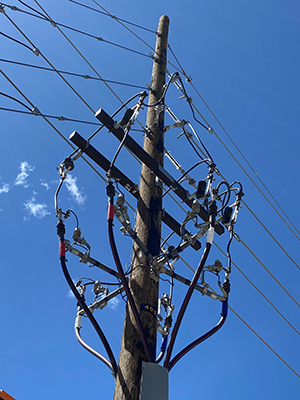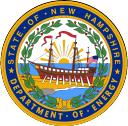Our Work
What We’re Doing and Where We’re Doing It
The Office of the Consumer Advocate advocates, in lots of legal proceedings. Our most important job is right in our name! Most of our caseload involves proceedings at the New Hampshire Public Utilities Commission. But we also participate in cases before the Federal Energy Regulatory Commission (FERC), appeals at the New Hampshire Supreme Court, and occasionally even in federal court. We are also a voting member of NEPOOL.
Here is a list of cases on which we are currently working. Note that our caseload is always in flux, so we can’t guarantee this is a complete and up-to-date list. Do you have questions about any of these proceedings? Feel free to contact us. Do you want to participate alongside us in one of the PUC dockets? Check out our Practice Guide.
- PUC Electric Cases
- PUC Gas Cases
- PUC Water Cases
- Appeals at The New Hampshire Supreme Court
- FERC Proceedings
- Federal Cases
Our Work at NEPOOL – the New England Power Pool
 New England's bulk power transmission system, which moves power around at high voltage throughout all six of the region's states, is operated (but not owned) by a nonprofit organization, ISO-New England. Known generically as a "regional transmission organization," ISO New England is subject to regulation by the FERC (not the New Hampshire Public Utilities Commission or any other state regulator) and is in charge of both the transmission system and the wholesale power markets at which electricity is bought and sold for resale to retail customers.
New England's bulk power transmission system, which moves power around at high voltage throughout all six of the region's states, is operated (but not owned) by a nonprofit organization, ISO-New England. Known generically as a "regional transmission organization," ISO New England is subject to regulation by the FERC (not the New Hampshire Public Utilities Commission or any other state regulator) and is in charge of both the transmission system and the wholesale power markets at which electricity is bought and sold for resale to retail customers.
The Federal Power Act gives FERC authority to regulate wholesale electricity in interstate commerce as well as the interstate transmission system. But in the late 1990s, FERC simply encouraged – but did not order – electric utilities and other generation owners – to turn over operational control to regional transmission organizations like ISO New England. To gain their cooperation, FERC authorized the creation of RTOs on terms favorable to the owners of the legacy system.
One result of that is NEPOOL. Although it is technically the stakeholder "advisory" board to ISO-New England, NEPOOL is not merely advisory – it has powerful, substantive rights. Among them: the right to deliberate on changes to the rules and procedures that govern New England's wholesale electricity markets, and in some circumstances the right to file proposed market rules for FERC approval that are different than, but arrive at FERC on an equal footing with, proposals made by ISO New England itself. (This is often referred to as the "jump ball" provision.)
The Office of the Consumer Advocate is a voting member of NEPOOL. But this does not mean our interests, or those of any other end-user customers of electricity, wield great influence at NEPOOL or ISO New England. NEPOOL is divided into six sectors, one of which is the "End User" sector to which we belong. (The others are Generation, Transmission, Publicly Owned Entities, Suppliers, and Alternative Resources). Because of complicated sectoral voting rules, and the requirement of a super-majority for most NEPOOL initiatives to pass, the sectors representing legacy interests (i.e., Generation and Transmission) tend to dominate at NEPOOL. On top of that, NEPOOL meetings are closed to the public! We would like to change that.
In addition to NEPOOL, there is also the New England States' Committee on Electricity. NESCOE represents the states, as sovereigns, before ISO New England and NEPOOL. NESCOE is governed by six "managers," one from each New England state, appointed by the respective governors. In our work as a member of NEPOOL, we strive to coordinate our efforts and positions with those of New Hampshire's NESCOE manager.
Finally, we participate actively in the Consumer Liaison Group (CLG) of ISO New England. This is an informal body that meets quarterly, at rotating locations around the region. Although a vice president of ISO New England briefs the Consumer Liaison Group on recent activities and initiatives at each quarterly meeting, we believe this is a pale substitute for substantive influence in the governance and oversight of ISO New England. We would like to change that as well! An organization of ratepayer advocates in 13 states outside of New England, known as CAPS (Consumer Advocates of the PJM States), offers an excellent example of what we have in mind.
Unlike NEPOOL meetings, CLG meetings are open to the public! There is even free food. Except that it isn't really free, when you consider that all of ISO New England's expenses are ultimately borne by New England's electricity customers.



